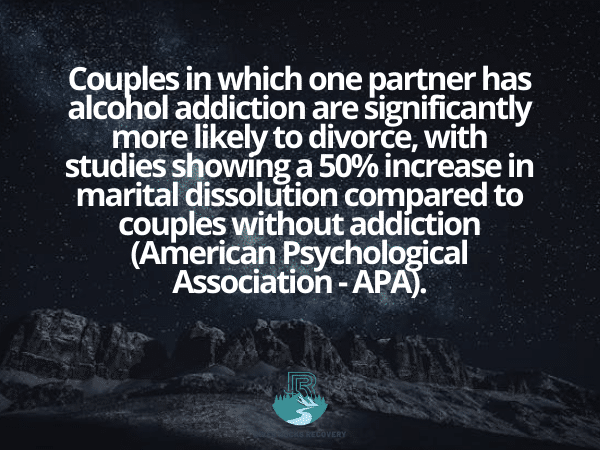Alcohol addiction doesn’t just affect the person struggling with it—it impacts their family, friends, and loved ones in profound ways. The emotional, financial, and social toll of addiction can strain relationships, leading to breakdowns in trust, communication, and emotional connection. Understanding how alcohol addiction affects relationships is crucial for healing and recovery. Fortunately, with the right support, including an Alcohol Addiction Treatment Program, individuals and their loved ones can rebuild their relationships and move toward a healthier future.
Addiction can cause trust concerns, emotional distancing, and even complete relationship breakdowns. Thus, let us learn how alcohol addiction affects relationships is the first step towards healing and recovery.
The Role of Alcohol in Addiction
Alcohol is one of the most often abused substances, and its consequences are sometimes overlooked due to its legal and societal acceptance. However, persistent and excessive alcohol consumption can result in addiction, a disorder that alters brain chemistry and an individual’s decision-making ability. When addiction sets in, the individual’s attention switches to getting and using alcohol, frequently at the price of personal relationships.
Erosion of Trust
Trust is the foundation of any healthy relationship, yet alcoholism frequently undermines this essential component. Individuals battling with addiction may lie about their drinking habits, conceal their behaviour, or make promises they cannot follow. This dishonesty sets off a cycle of mistrust, leaving loved ones feeling betrayed and saddened. As the addictive behavior continues, it becomes more difficult to regain trust.
Communication Breakdown
Effective communication is vital for maintaining healthy relationships. Unfortunately, alcoholism can alter this dynamic. Intoxication frequently causes misunderstandings, disputes, and sometimes aggressive conduct, making it difficult to resolve conflicts constructively. Over time, loved ones may feel unable to connect or interact with the person they care about, resulting in emotional distance.
Emotional and Psychological Strain
Living with or being close to someone suffering from alcoholism takes a heavy emotional toll. Loved ones frequently feel frustrated, depressed, angry, and helpless as they watch the person they care about suffer. For the addict, emotions of guilt, humiliation, and low self-esteem can exacerbate the situation, resulting in a vicious cycle that affects everyone involved.
Financial Challenges
Alcohol addiction can have a significant financial impact. Excessive alcohol use, lost workdays, or job loss as a result of drinking-related disorders can all put financial strain on relationships, especially those within families. Financial instability frequently causes disagreements and affects the ties between loved ones.
Impact on Parenting and Family Dynamics
For people who have children, alcoholism can have a significant impact on family dynamics. Parental alcoholism can lead to neglect, uneven parenting, and even dangerous situations for children. This can leave emotional scars and damage parent-child ties. Other family members, such as siblings or spouses, may take on caring responsibilities, disrupting family dynamics.
Enabling and Codependency
In other circumstances, loved ones unintentionally facilitate addicted behavior by covering for the individual, excusing their acts, or offering financial assistance that indirectly pays for their alcohol usage. This interaction can progress to codependency, in which the enabler’s self-esteem is linked to the individual’s addiction. Breaking the pattern takes both awareness and expert help.
Steps to Healing and Recovery
While alcoholism hurts relationships, there is hope for rehabilitation. Addressing the addiction with competent help is an important first step. Relationships can also be repaired via open conversation, trust restoration, and healthy boundary setting. Support groups and therapy, such as family or couples counseling, give a secure area for everyone involved to express themselves and work toward a solution.
Rebuilding Relationships Through Recovery
While alcohol addiction can severely damage relationships, recovery offers an opportunity for healing and growth.
1. Seeking Professional Help
Rebuilding relationships starts with addressing the addiction itself. Professional treatment programs like those at River Rocks Recovery provide the support needed to achieve and maintain sobriety.
- Alcohol Addiction Treatment Program: Comprehensive care to address the root causes of addiction and develop healthier habits.
- Partial Hospitalization Program (PHP): Offers structured, intensive treatment during the day, allowing individuals to focus fully on recovery.
- Intensive Outpatient Program (IOP): Provides flexible treatment for individuals balancing recovery with other responsibilities.
- Sober Living Program: Offers a supportive, alcohol-free environment for individuals transitioning back into everyday life.
2. Family Therapy
Family therapy is a cornerstone of rebuilding relationships affected by alcohol addiction.
- Improved Communication: Therapy sessions provide a safe space to discuss feelings, rebuild trust, and learn effective communication skills.
- Understanding Addiction: Family members gain insight into addiction as a disease, reducing blame and judgment.
- Conflict Resolution: Therapists help families work through past hurts and develop healthier dynamics.
3. Open and Honest Communication
Honesty is critical for rebuilding trust and repairing relationships.
- Acknowledging Past Mistakes: Taking responsibility for past actions helps loved ones see the individual’s commitment to change.
- Expressing Needs: Open communication allows both parties to express their needs and expectations moving forward.
- Setting Boundaries: Healthy boundaries create a foundation for mutual respect and emotional safety.
4. Rebuilding Trust Gradually
Trust takes time to rebuild and requires consistent effort.
- Follow Through: Keeping promises and meeting commitments shows loved ones that the individual is serious about recovery.
- Transparency: Being honest about progress and challenges helps rebuild credibility.
- Patience: Loved ones need time to process and heal from past hurts.
5. Establishing a Support System
Recovery is not just about overcoming addiction—it’s about building a support network to maintain long-term sobriety.
- Peer Support Groups: Programs like Alcoholics Anonymous (AA) provide a sense of community and accountability.
- Therapy and Counseling: Individual and group therapy offer ongoing support for emotional and psychological well-being.
- Healthy Relationships: Surrounding oneself with positive, supportive individuals helps reinforce sobriety.

How River Rocks Recovery Can Help
At River Rocks Recovery, we understand the impact of alcohol addiction on relationships and provide the resources needed for healing and recovery.
Our Programs Include:
- Alcohol Addiction Treatment Program: Comprehensive care addressing both physical and emotional aspects of addiction.
- Partial Hospitalization Program (PHP): Intensive treatment for individuals needing structured support.
- Intensive Outpatient Program (IOP): Flexible treatment options for those balancing recovery with daily life.
- Outpatient Program: Continued therapy and support for long-term sobriety.
- Sober Living Program: A supportive environment for individuals transitioning back to independent living.
Therapies Offered:
- Family Therapy: Helps repair and rebuild family dynamics.
- Cognitive Behavioral Therapy (CBT): Addresses negative thought patterns and behaviors contributing to addiction.
- Trauma-Informed Care: Provides support for individuals with past trauma impacting their relationships and addiction.
Choose River Rocks Recovery – Addiction Treatment Center in Ohio!
At River Rocks Recovery, we realize how damaging alcohol addiction can be for individuals and their relationships. Our comprehensive addiction treatment programs are meant to address not just the addiction itself, but also the underlying causes of it.
We provide evidence-based therapy, family counseling, and holistic ways to help people re-establish trust, communicate effectively, and deepen their relationships. With our compassionate team at your side, you’ll get the help and resources you need to overcome addiction and rebuild relationships with your loved ones.
Conclusion
Alcohol addiction can strain even the strongest relationships, but recovery provides an opportunity for healing and growth. By seeking professional help, engaging in family therapy, and rebuilding trust, individuals and their loved ones can overcome the challenges of addiction together.
At River Rocks Recovery, we are committed to helping individuals and families heal from the effects of alcohol addiction. Call us today at (888) 905-6281 to learn more about our programs and take the first step toward a healthier future.
FAQ for Alcohol Addiction and Its Impact on Relationships
How does alcohol addiction affect relationships?
Alcohol addiction can lead to trust issues, poor communication, emotional distress, financial strain, and social isolation, severely impacting relationships with family, friends, and partners.
Can relationships recover after alcohol addiction?
Yes, with the right support, including professional treatment and family therapy, relationships can heal, and trust can be rebuilt over time.
What role does family therapy play in recovery?
Family therapy helps improve communication, resolve conflicts, and rebuild trust, fostering healthier dynamics between individuals in recovery and their loved ones.
What programs support relationship healing during addiction treatment?
Programs like the Alcohol Addiction Treatment Program, Partial Hospitalization Program (PHP), and Sober Living Program provide tools and resources to address addiction and its impact on relationships.
How can loved ones support someone in recovery?
Loved ones can provide encouragement, attend therapy sessions, set healthy boundaries, and educate themselves about addiction to foster understanding and support.




























